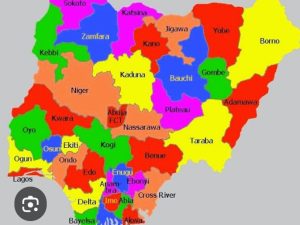

By Dada Ahmed/Bernard Balogun.

In recent months, Nigeria’s political landscape has been stirred by a controversial debate: what should be done about individuals who openly renounced their Nigerian identity and declared allegiance elsewhere? Should the government swiftly deport them, as many patriotic voices are demanding, or should it tread carefully, recognizing such declarations as political sentiment borned out of frustration?
Those calling for deportation argued that the matter is simple. If some persons say they are no longer Nigerians, the State should take them for their word. Nationality, they insist, is not a casual cloak to be worn and discarded at will. To continue enjoying the status and benefits of citizenship while publicly rejecting it amount to hypocrisy. Deportation, they argue, would not only honor the individual’s wishes but also send a clear message that citizenship is a sacred bond, not a bargaining chip.
Supporters of this stance add that anyone who chooses that route, should be prepared to forfeit their investments, businesses, or personal assets in Nigeria.
The argument is that,like other deportees across the globe, they must live with the consequences of their actions. In their views, allowing such individuals to remain while mocking the nation’s identity sets a dangerous precedent that undermines national unity.
Yet, there is another angle to the story. Critics of deportation cautioned that citizenship is not a privilege the government can stripped away at whims and caprices.
It transcends that boundary. Nigeria’s constitution guarantees freedom of expression. That is clear, however to provocatively renouncing one’s “Nigerianness” cannot be said to fall within the right to free speech. To deport citizens based on such declarations would tantamount to punish dissent, potentially criminalizing political frustration.
In another light, many argue that such radical decisions are often rooted at what they consider as their anger against the State, arising from insecurity, or economic hardship, among other administrative inadequacies, though not necessarily genuine enough for rejection of one’s country. Economic hardship is a global phenomenon. It is true deportation may indeed reduce discordant voices, certainly, it does nothing to address the systemic problems that gave rise to them in the first place. In a sense, deportation risks silencing dissent voices while leaving the real issues unresolved.
Still, the frustration of loyal Nigerians is palpable. Many feel betrayed, especially in the uneven equitable distribution of our commonwealty.
Of course, we are first to admit, this could be demoralizing and frustration but in all sincerity, is it a noble attitude to run down with derogatory adjectives our country? It is such “a self-defeatist” tendency.
In our candid opinion, let us continue to talk, propound viable options on the ways. Nation building endeavour is not an over-night issue. We must consistently highlight those common goals that unite us a people. Nations are not built on the strength of derogatory and gibberish remarks.
We have come a long way to disintegrate at this juncture of our political history. Our political founding fathers will not forgive us.
It is their wish that this generation sustains their struggles and improve on it. This is certainly the minimum they expect from us from their respective graves.


